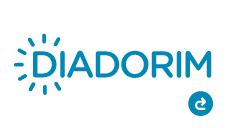EXPORTATION OF LIVE CATTLE FROM BRAZIL: AN ANALYSIS FROM THE AGENCY AND ANIMAL RESISTANCE
DOI:
https://doi.org/10.9771/rbda.v20i0.64646Keywords:
Antiespeciesism, Animal agency, Critical animal studies, Livestock export, Animal resistanceAbstract
There has been a growing body of research on the agency and resistance of other animals to their exploiters and to speciesism, especially by authors in Critical Animal Studies and Multispecies Studies. Decades of scientific work have demonstrated the complexities of animals’ cognitions, emotions, and sociability, which has resulted in the recognition that they possess and exercise agency. Jason Hribal (2007) proposes a methodological perspective from below, which recognizes animals as historical agents who have negotiated the limits of their exploitation, created social change, and allied themselves with human groups against other forms of exploitation. From this perspective, this work analyzes the maritime export trade of live cattle from Brazil, understanding the live cattle subjects as agents who resist this practice, unlike the Western tradition, even animalist ones, which portray animals as passive beings, moral patients. As a case study, we analyzed the documentary “Elias, the Ox Who Learned to Swim,” produced by the NGO Mercy for Animals, which tells the story of the ox that escaped from the ship that was exporting it and swam to shore for more than 5 hours. The documentary denounces the cruel and unhealthy conditions in which animals are transported. We propose that animal exploitation and oppression be read in terms of Animal Agency and Resistance.
Downloads
References
ANDA, Agência de Notícias de Direitos Animais. Porto de São Sebastião: mais de cinco mil bois enfrentam viagem angustiante rumo à morte. 2024. Disponível em: https://anda.jor.br/porto-de-sao-sebastiao-mais-de-cinco-mil-bois-enfretam-viagem-angustiante-rumo-a-morte. Acesso em: 22 nov. 2024.
CHANG, Darren. Tensions in contemporary Indigenous and animal advocacy struggles: the commercial seal hunt as a case study. In: MONTFORD, Kelly Struthers; TAYLOR, Chloë (Ed.). Colonialism and Animality: Anti-Colonial Perspectives in Critical Animal Studies. Abingdon, Oxon; New York, NY: Routledge, 2020. p. 29-49. Disponível em: https://www.taylorfrancis.com/chapters/edit/10.4324/9781003013891-2/tensions-contemporary-indigenous-animal-advocacy-struggles-darren-chang. Acesso em: 23 nov. 2024.
COLLING, Sarat. Animal Agency, Resistance, and Escape. In: MATSUOKA, Atsuko; SORENSON, John (Eds.). Critical Animal Studies: Toward Trans-Species Social Justice. London: Rowman & Littlefield International, 2018. p. 21-44. Disponível em: https://rowman.com/ISBN/9781786606464/Critical-Animal-Studies-Towards-Trans-species-Social-Justice. Acesso em 23 nov. 2024.
DECKHA, Maneesha. Humanizing the Nonhuman: A Legitimate Way for Animals to Escape Juridical Property Status? In: MATSUOKA, Atsuko; SORENSON, John (Org.). Critical Animals Studies: Toward Trans-species Social Justice. Londres: Rowman & Littlefield International, 2018. p. 209-233. Disponível em: https://rowman.com/ISBN/9781786606464/Critical-Animal-Studies-Towards-Trans-species-Social-Justice. Acesso em 23 nov. 2024.
FERDINAND, Malcom. Uma ecologia decolonial: pensar a partir do mundo caribenho. São Paulo: Ubu Editora, 2022.
GORDILHO, Heron José de Santana. Abolicionismo animal: habeas corpus para grandes primatas. 2. ed. Salvador: EDUFBA, 2017.
HRIBAL, Jason. Animals, Agency, and Class: Writing the History of Animals from Below. Human Ecology Review, vol. 14, no. 1, 2007, pp. 101–12. Disponível em: http://www.jstor.org/stable/24707647. Acesso em: 23 Nov. 2024.
JOY, Melanie. Por que amamos cachorros, comemos porcos e vestimos vacas: uma introdução ao carnismo. Tradução de Alda Lima. 1. ed. Barueri: Editora Pandorga, 2019.
LOURENÇO, Daniel Braga. LUDOLF, Rafael van Erven. A exportação de gado vivo no brasil e a regra constitucional da vedação da crueldade. Revista Brasileira de Direito Animal, Salvador, volume 15, n. 03, p.53 - 73, Set – Dez 2020. Disponível em: https://periodicos.ufba.br/index.php/RBDA/article/view/38789. DOI: https://doi.org/10.9771/rbda.v15i3.38789.
LUDOLF, Rafael van Erven. Resistência animal: uma análise da exportação de gado vivo do Brasil, do especismo colonial e do direito animal. 2024. Tese (Doutorado em Sociologia e Direito) – Universidade Federal Fluminense, Niterói, 2024. Disponível em: https://sucupira-legado.capes.gov.br/sucupira.
MERCY FOR ANIMALS. Elias: o boi que aprendeu a nadar. 2023. Disponível em: https://youtu.be/1XsAgrDSKBI?si=hor3hCJHu0DBXR7L. Acesso em 22 nov. 2024.
PACHIRAT, Timothy. Every Twelve Seconds: Industrialized Slaughter and the Politics of Sight. New Haven, CT and London: Yale University Press, 2011.
ROCHA, Jailson José Gomes da. Direito, decolonialidade e giro multiespécie. Revista Direito e Práxis, v. 12, n. 2, 2021. Disponível em: https://www.scielo.br/j/rdp/a/qYt7vL7HckKNzrxCx69hWXM/?format=pdf&lang=pt. Acesso em: 23 nov. 2024. DOI: 10.1590/2179-8966/2020/46939.
SÜSSEKIND, Felipe. Sobre a vida multiespécie. Revista do Instituto de Estudos Brasileiros, São Paulo, Brasil, n. 69, p. 159–178, 2018. Disponível em: https://www.revistas.usp.br/rieb/article/view/145638. Acesso em: 23 nov. 2024. DOI: 10.11606/issn.2316-901X.v0i69p159-178.
Downloads
Published
How to Cite
Issue
Section
License
Copyright (c) 2025 Brazilian Animal Law Journal

This work is licensed under a Creative Commons Attribution-NonCommercial 4.0 International License.
1. Autores mantém os direitos autorais e concedem à revista o direito de primeira publicação, com o trabalho simultaneamente licenciado sob a Licença Creative Commons Atribuição 4.0 Internacional que permite o compartilhamentodo trabalho com reconhecimento da autoria e publicação inicial nesta revista.
2. Autores têm autorização para assumir contratos adicionais separadamente, para distribuição não-exclusiva da versão do trabalho publicada nesta revista (ex.: publicar em repositório institucional ou como capítulo de livro), com reconhecimento de autoria e publicação inicial nesta revista.
3. Autores têm permissão e são estimulados a publicar e distribuir seu trabalho online (ex.: em repositórios institucionais ou na sua página pessoal) a qualquer ponto antes ou durante o processo editorial, já que isso pode gerar alterações produtivas, bem como aumentar o impacto e a citação do trabalho publicado.












